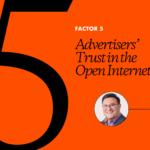By now, publishers are used to Facebook’s endless pivots. Typically, they complain, and then adjust, and then wait for the next pivot to arrive, at which point the process starts over again. But adjusting to their latest pivot might prove to be a challenge. This time, Meta is effectively saying Facebook no longer needs publishers at all, and is cutting funding altogether for its news deals.
To quote Meta itself: “Most people do not come to Facebook for news, and as a business it doesn’t make sense to over-invest in areas that don’t align with user preferences.” So a spokesperson told Axios, in a piece about Facebook ending a program of paying publishers for News Tab content. This announcement comes in the context of a larger shift for Facebook, away from classic “social networking” towards algorithm-driven video content.
This is, of course, just the latest instance of Facebook’s ambivalence towards publishers. Yes, Meta is cutting the funding and pivoting to compete with TikTok, but is also likely in anticipation of a series of pieces of legislation across the globe, from Australia to the US, that will ultimately require payment for the news, anyways. But it sends a clear message: news is not a priority.
Publishers, then, are at a crossroads: they can continue to try and play Facebook’s game, with ever-diminishing returns—or they can light out on their own and start cultivating their own communities, away from Facebook’s influence.
Fill the void: Make your platform a social platform for news
Facebook pivoting away from news isn’t just a problem for publishers: it’s a problem for readers. Some users might prefer viral short-form clips, but there remains a massive audience for actual journalism––and that audience, under Facebook’s new regime, is going to be direly underserved. In that sense, Facebook’s pivot presents a real opportunity: with Facebook effectively abdicating the social news game, publishers can step in to fill the void.
Publishers, of course, have been trying to turn their sites into social destinations for at least a decade. But the big social platforms’ vise grip on discourse has made it difficult. Every publisher knows the frustration of investing resources into your content only to see Facebook reap the rewards in terms of on-site engagement and conversation. With the right tools, publishers now stand a much better chance of keeping that conversation on their own domain.
And it goes beyond conversation. The importance of dynamic, real-time social experiences isn’t news to publishers, but Meta’s latest pivot lends it newfound urgency. Live Blogs and AMAs, regular reader polls, dialogues between journalists and users––this kind of content keeps users coming back again and again, and gives publishers a way to survive without relying on social traffic.
Put all that reader data to use
The goal should be to shorten the distance between your readers and your content. Instead of detouring through Facebook, they come straight to you. Accordingly, you start to learn much more about them: their interests, their on-site habits, what gets them clicking and what sends them off the page. This is the kind of information that platforms like Facebook have always used to optimize engagement and boost revenue. The difference, now, is that you’re the one using that information, and earning the full value of the content you produce.
With past pivots, Facebook has at least paid lip service to the importance of journalism. They’re not even bothering with that anymore. Meta has made its intentions clear. It’s up to publishers to heed the call, and keep building a sustainable future on their own terms.


